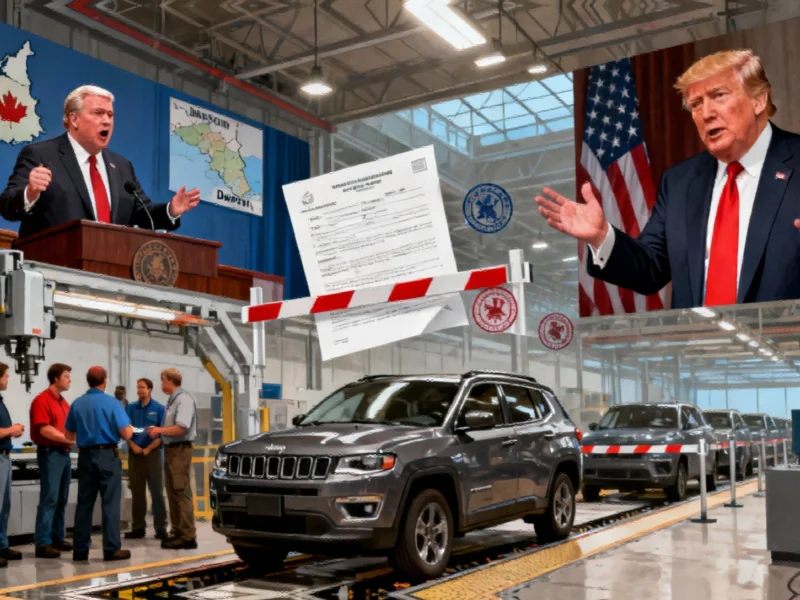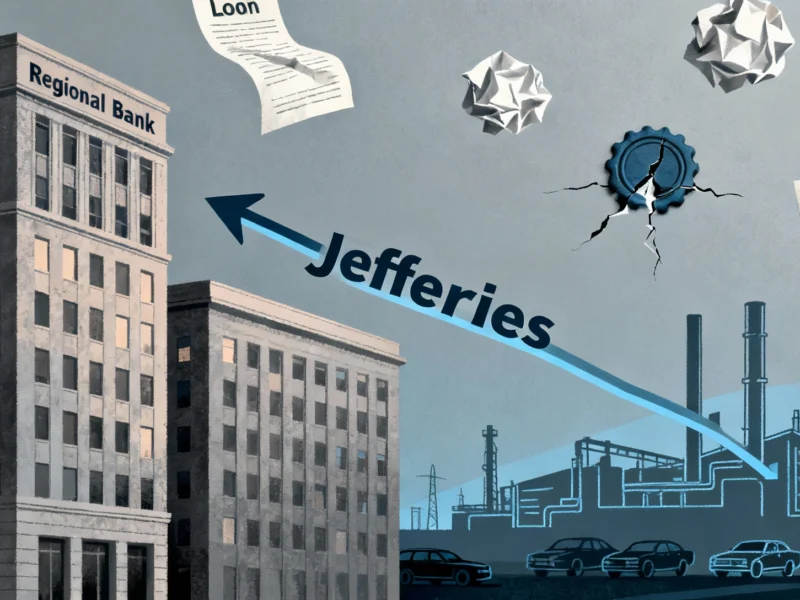Ontario Premier Doug Ford has called for aggressive economic retaliation against the United States after automaker Stellantis confirmed it will relocate Jeep Compass production from Canada to Illinois, part of a massive $13 billion U.S. manufacturing expansion. Ford specifically blamed President Donald Trump for what he characterized as economic bullying, stating “That guy, President Trump, he’s a real piece of work. I’m sick and tired of rolling over. We need to fight back.”
The announcement represents a significant blow to Ontario’s automotive sector and comes amid ongoing trade negotiations between the two nations. As trade tensions escalate between North American partners, Ford has urged the federal government to implement retaliatory tariffs if Prime Minister Mark Carney cannot secure a favorable trade agreement with the Trump administration.
Federal officials have responded with strong criticism of Stellantis’s decision. Industry Minister Mélanie Joly declared the production shift “unacceptable” and warned the company had made binding commitments to Canadian production in exchange for substantial government financial support. “Anything short of fulfilling that commitment will be considered as default under our agreements,” Joly wrote in a letter to the Stellantis CEO.
Economic Impact and Worker Fallout
The Stellantis decision has generated widespread concern across Ontario’s industrial landscape. Canada’s automotive sector represents the nation’s second-largest export category, directly employing approximately 125,000 workers and supporting nearly 500,000 additional jobs in related industries. Workers at the Brampton assembly plant received robocalls Wednesday informing them that expected work would not be returning, compounding the impact of the facility’s 2023 closure and the layoff of roughly 3,000 employees.
Vito Beato, president of Unifor Local 1285 representing Brampton plant workers, expressed surprise at the announcement, noting Stellantis had previously committed to Jeep Compass production in Ontario. The situation highlights how corporate strategies are increasingly influenced by political and economic pressures beyond traditional business considerations.
Broader Implications for North American Trade
Brampton Mayor Patrick Brown voiced concerns that the Stellantis move could establish a dangerous precedent. “If this bullying tactic works with Stellantis I expect it to be replicated to every other automaker that has a presence in Canada and frankly other sectors that the U.S. has an interest in,” Brown told the Canadian Broadcasting Corporation.
The controversy emerges as Canada attempts to navigate complex trade relationships. While Carney won election earlier this year partly due to anti-Trump sentiment fueled by annexation threats and trade disputes, his administration has recently worked to improve relations ahead of next year’s scheduled review of the United States-Mexico-Canada trade pact. This balancing act is complicated by Canada’s economic dependence on the U.S., which receives over 75% of Canadian exports.
Meanwhile, technological advancements continue to transform manufacturing landscapes. As companies like Stellantis make significant production investments, they’re increasingly implementing advanced cooling solutions essential for next-generation manufacturing processes in their facilities.
Political Responses and Future Negotiations
Prime Minister Carney characterized the Stellantis decision as a “direct consequence of tariffs” and pledged that his government would work to create new opportunities in the Brampton area. The federal government has threatened legal action against Stellantis while simultaneously pursuing diplomatic solutions.
Dominic LeBlanc, Canada’s minister responsible for Canada-U.S. trade, is currently in Washington for talks aimed at reducing tariffs on specific sectors. These negotiations follow Carney’s departure from Washington last week without a trade agreement. The situation illustrates how major corporate financial decisions increasingly intersect with international trade policies and government relations.
Stellantis has attempted to soften the blow by emphasizing its continued Canadian investments, including adding a third shift at its Windsor, Ontario assembly plant, and ongoing discussions with the government regarding the Brampton facility’s future. However, these assurances have done little to calm political and labor leaders who view the production shift as a significant economic setback.
As Premier Ford prepares to meet with Prime Minister Carney this week, the confrontation highlights the complex interplay between corporate investment decisions and international trade relations. The outcome may well depend on how effectively Canadian officials can leverage emerging technologies and advanced analytical approaches to develop sophisticated counterstrategies in an increasingly competitive global manufacturing environment.
Based on reporting by {‘uri’: ‘fortune.com’, ‘dataType’: ‘news’, ‘title’: ‘Fortune’, ‘description’: ‘Unrivaled access, premier storytelling, and the best of business since 1930.’, ‘location’: {‘type’: ‘place’, ‘geoNamesId’: ‘5128581’, ‘label’: {‘eng’: ‘New York City’}, ‘population’: 8175133, ‘lat’: 40.71427, ‘long’: -74.00597, ‘country’: {‘type’: ‘country’, ‘geoNamesId’: ‘6252001’, ‘label’: {‘eng’: ‘United States’}, ‘population’: 310232863, ‘lat’: 39.76, ‘long’: -98.5, ‘area’: 9629091, ‘continent’: ‘Noth America’}}, ‘locationValidated’: False, ‘ranking’: {‘importanceRank’: 213198, ‘alexaGlobalRank’: 5974, ‘alexaCountryRank’: 2699}}. This article aggregates information from publicly available sources. All trademarks and copyrights belong to their respective owners.



